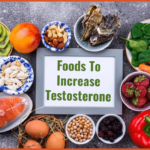A low-sodium diet, also known as a low-salt diet, offers several benefits for overall health and well-being. Here are some specific benefits of a low-sodium diet:
- Helps maintain healthy blood pressure: A high-sodium diet is often associated with elevated blood pressure, which is a risk factor for heart disease, stroke, and other cardiovascular conditions. By reducing sodium intake, blood pressure can be better controlled, promoting heart health and reducing the risk of related diseases.
- Reduces the risk of cardiovascular diseases: High sodium intake is linked to an increased risk of heart disease, stroke, and other cardiovascular complications. A low-sodium diet helps lower this risk by reducing blood pressure, promoting better heart health, and improving overall cardiovascular function.
- Supports kidney health: Excessive sodium intake can put a strain on the kidneys and contribute to the development of kidney problems, including kidney stones and impaired kidney function. Following a low-sodium diet helps alleviate this burden and promotes optimal kidney health.
- Helps manage fluid balance: Sodium plays a role in fluid balance within the body. By reducing sodium intake, fluid retention and bloating can be minimized, helping maintain a healthy balance of body fluids.
- Reduces the risk of stomach cancer: A diet high in sodium, particularly from salted and processed foods, has been associated with an increased risk of stomach cancer. By following a low-sodium diet, the risk of developing this type of cancer can be reduced.
- Supports bone health: High sodium intake can contribute to increased calcium excretion in urine, potentially leading to lower bone density and increased risk of osteoporosis. Choosing a low-sodium diet helps maintain better bone health and reduces the risk of osteoporosis.
- Promotes a healthy weight: Many processed and high-sodium foods are also high in calories, unhealthy fats, and added sugars, contributing to weight gain and obesity. Opting for a low-sodium diet emphasizes whole foods, making it easier to maintain a healthy weight and support overall well-being.
- Encourages healthier food choices: Following a low-sodium diet encourages individuals to be more mindful of their food choices and opt for fresh, whole foods over processed options. This can lead to a diet that is richer in essential nutrients, fiber, and other beneficial compounds.
- Supports overall well-being: By reducing sodium intake, individuals may experience improved energy levels, better digestion, and general feelings of well-being. A low-sodium diet can contribute to an overall healthier lifestyle.
It’s important to note that while a low-sodium diet is beneficial for many people, individuals with certain medical conditions may have different sodium requirements. It’s advisable to consult with a healthcare professional or registered dietitian to determine the most appropriate sodium intake for your specific needs.












188V có chính sách “bảo hiểm thua lỗ” cho thành viên mới: nếu thua liên tiếp trong 3 ngày đầu, bạn sẽ được hoàn lại 20% tổng cược – giảm thiểu rủi ro khi bắt đầu. TONY01-23